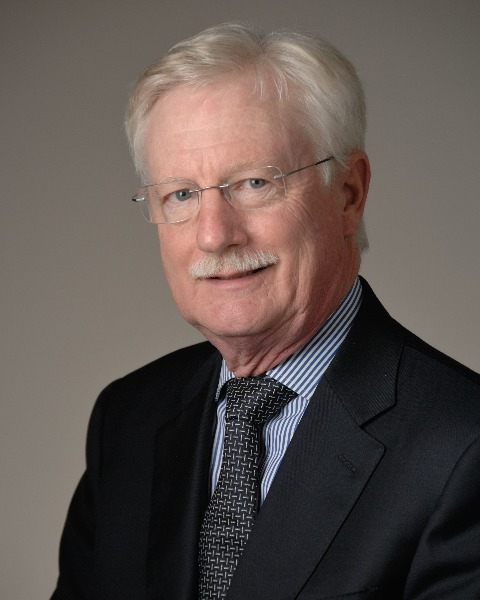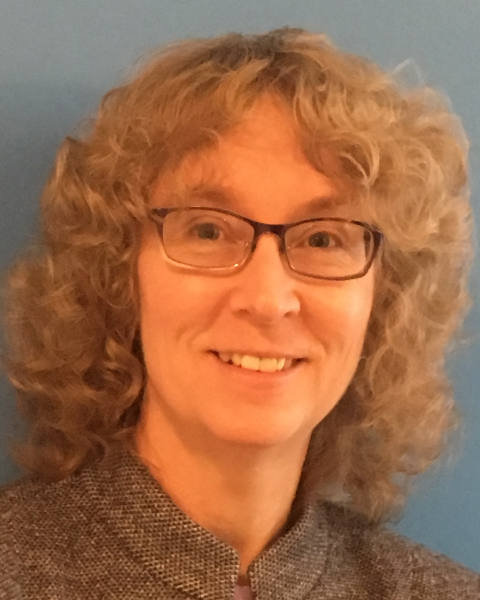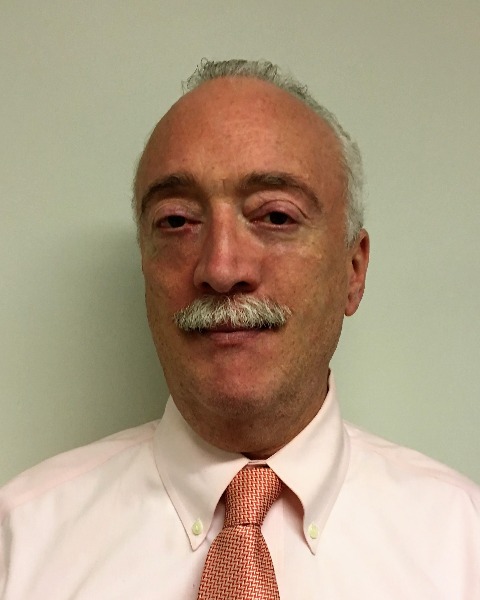
Bridging the Gap Between Science and Clinical Practice in Addiction Medicine
- Registration Closed

Bridging the Gap Between Science and Clinical Practice in Addiction Medicine
Recorded: Thursday, March 31, 2022 - Sunday, April 3, 2022
On-Demand Session
Overview
This 1-hour, on-demand session from the ASAM 53rd Annual Conference describes hot topics in addiction medicine research and how to create more alignment between the research funders and practicing clinicians.
This session will provide an opportunity for bidirectional communication between federal science funding agencies and clinicians/clinician-researchers about ?hot? topics in addiction medicine research and how to address the divide between research and clinical practice. Funding agency representatives will solicit clinicians? feedback on which areas of research should be prioritized to improve clinical practice. Clinicians/clinician-researchers will learn about opportunities for increasing their participation in research. Participants also will engage in brainstorming about how to include more clinical voices in the shaping of addiction research priorities. NIAAA, NIDA, and AHRQ have requested input from ASAM members on how to improve the clinical relevance of their addiction medicine research portfolios. Your ideas will also help to inform our ?Bridging the Gap between Science and Clinical Practice? session at ASAM?s 2022 conference. Please provide your input here.
The target audience for this Intermediate level session includes physicians, nurse practitioners, physician assistants, other clinicians, researchers, residents, fellows, students, and counselors.
This session addresses the following ACGME Competencies: Patient Care and Procedural Skills, Medical Knowledge, Practice-based Learning and Improvement, System Based Practice.
Learning Objectives
Upon completion, learners will be able to:
- List priorities for addiction medicine research from NIDA, NIAAA and AHRQ.
- Describe opportunities for increasing participating in addiction medicine research.
- Identify current work to address equity in addiction medicine research.
Registration Rates
| Rate Description | Rate |
| ASAM Member | $29 |
| Non-Member | $39 |
| Associate Member | $19 |
| Resident Member* | $19 |
| Student Member* | $19 |
*Residents, Fellows-in-training, Interns, and Students must join ASAM to receive a discounted registration rate. Click here to become an ASAM member. National and Chapter membership dues apply. There is no charge for Students to become a Member, but verification of student status is required.
Membership Question? Call ASAM at 1.301.656.3920, email us, or view the ASAM website for more information.
Refunds & Cancellations
All ASAM e-Learning Center refund requests must be made in writing to education@asam.org within 90 days of purchase. Those requesting refunds for courses that are in progress will receive partial refunds or e-Learning Center credit. Automatic full refunds will be made for any course with a live-course component that has been cancelled.
Registration Deadline: 05/01/2025
Course Instructions
- Click on the Contents tab to watch the on-demand recording.
- Click Complete Post Test to answer multiple choice questions. Participants will have 10 attempts to pass and must answer 2 out of 3 questions correctly.
- Click Complete Evaluation to provide valuable activity feedback. Scroll down on all questions as there may be answer options that expand past the size of the window.
- Click the button Claim Medical Credits in the box titled Claim Credits & Certificate. Choose the type of credit and click submit. Click the button View/Print Certificate to save or print your certificate. You can view/print your certificate at any time by visiting the ASAM eLearning Center, clicking Dashboard, and clicking Transcript/Achievements.
Need Assistance?
For assistance logging in, accessing activities, claiming credit, or for other questions or concerns, please check the FAQ page or e-mail Education@ASAM.org
ASAM is proud to offer Essential Accessibility to ensure our website is accessible and functional for all our learners while providing free assistive technology for people with the widest possible range of abilities.

George Koob
PhD
George F. Koob, PhD is Director of the National Institute on Alcohol Abuse and Alcoholism where he oversees a wide range of alcohol-related research, including genetics, neuroscience, epidemiology, prevention, and treatment.
As an authority on alcoholism, drug addiction and stress, he has contributed to our understanding of the neurocircuitry associated with the acute reinforcing effects of alcohol and drugs of abuse and the neuroadaptations of the reward and stress circuits associated with the transition to dependence. Dr. Koob has published over 750 peer reviewed papers and several books including the “Neurobiology of Addiction,” a comprehensive treatise on emerging research in the field, and a textbook for upper division undergraduates and graduate students called “Drugs, Addiction and the Brain.” He has mentored 12 PhD students, 84 post-doctoral fellows, and 11 K99’s.
He received his PhD in Behavioral Physiology from Johns Hopkins University in 1972. He spent much of his early career at the Scripps Research Institute as the Director of the Alcohol Research Center, and as Professor and Chair of the Scripps’ Committee on the Neurobiology of Addictive Disorders. He has also served as a researcher in the Department of Neurophysiology at the Walter Reed Army Institute of Research and the Arthur Vining Davis Center for Behavioral Neurobiology at the Salk Institute for Biological Studies. Dr. Koob is the recipient of many honors, including membership in the National Academy of Medicine and award of the Legion of Honor (Knight of the Legion of Honor, France).

Geetha Subramaniam
MD, DFAPA, DFAACAP
Geetha Subramaniam MD, DFAPA, DFAACAP is the Deputy Director of the Center for Clinical Trials Network, at NIDA. In this role, she has been instrumental in developing research projects in a variety of topic areas, including addressing the prevention of substance abuse in adolescents, prevention and intervention of prescription stimulant misuse in youth. Previously, she was a full-time faculty member in the Division of Child Psychiatry at Johns Hopkins School of Medicine and the Associate Medical Director of Mountain Manor Treatment Center, Baltimore, MD, where she led clinical trials with adolescents with SUD and served as a preceptor to residents and fellows. She distinguished herself as a clinical and research expert in the assessment and treatment of adolescents and young adults with opioid use disorders. She is ABPN certified in General, Child, and Adolescent, and Addiction Psychiatry and a Distinguished Fellow of both the American Psychiatric Association and the American Academy of Child and Adolescent Psychiatry.

Elisabeth Kato
MD, MRP
Elisabeth Uphoff Kato, MD, MRP, is a medical officer at the Agency for Healthcare Research and Quality in the Center for Evidence and Practice Improvement, where she coordinates AHRQ activities related to opioids and supports the National Center for Excellence in Primary Care. She previously served as medical officer to the Evidence-based Practice Center Program and the US Preventive Services Task Force at AHRQ. Prior to joining the federal government she worked as a Senior Medical Research Analyst with Hayes Inc. Before turning to medicine, Dr. Kato worked on international development projects in Nepal, Thailand, and Cambodia. Dr. Kato received medical training at the University of Maryland and has Master’s and Bachelor’s degrees from Cornell University.

Ken Freedman
MD, MS, MBA, FACP, AGAF, DFASAM
Ken has been a dedicated ASAM member and officer (CT, MA, and nationally) for the past 22 years. His commitment has been demonstrated by most recently serving as National Treasurer & Finance Council Chair (since 2019) and Quality Improvement Council Chair (since 2019). He has also served on The ASAM Criteria Strategy Steering Committee and the CEO Search Committee. Previous roles have included: Regional III Director (2013-2018), Finance Committee member (since 2013), Ethics Committee member (since 2015 and Chair 2018-2019), Quality Improvement Council member (since 2016), MA officer (Treasurer and Secretary), and CT officer (President, Vice-President, and Secretary/Treasurer).
Currently, he works as both a Medical Director for Aetna (a CVS Health Company) and as Physician Consultant for The Recovery Research Network (TRRN). His previous leadership roles have also included MA Public Health Hospitals’ system quality chief, public health hospital CMO (Lemuel Shattuck Hospital in Boston), director of two outpatient MAT programs, Clinical Professor of Medicine at Tufts University School of Medicine and Adjunct Clinical Associate Professor of Psychiatry at the University of Massachusetts Medical School. He is board-certified in addiction medicine, internal medicine and gastroenterology, and maintains membership in the AMA, ACP, ACG, and AGA. Ken’s professional commitment is to help move health care delivery toward the integration of medical care and substance use disorders in respectful and innovative ways.
CME, CE, CEU and Other Credit Types

ACCME Accreditation Statement
The American Society of Addiction Medicine is accredited by the Accreditation Council for Continuing Medical Education (ACCME) to provide continuing medical education for physicians.
AMA Credit Designation Statement
The American Society of Addiction Medicine designates this enduring material for a maximum of 1 AMA PRA Category 1 Credits™. Physicians should claim only the credit commensurate with the extent of their participation in the activity.
NAADAC, the Association for Addiction Professionals
This activity has been approved by the American Society of Addiction Medicine, as a NAADAC Approved Education Provider, for educational credits. NAADAC Provider #295, ASAM is responsible for all aspects of the programming.
California Association for Drug/Alcohol Educators (CAADE)
This educational program is approved by CAADE: #CP40 999 1222.
California Association of DUI Treatment Centers (CADTP)
This educational program is approved by CADTP: #205.
California Consortium of Addiction Programs and Professionals (CCAPP)
This educational program is approved by CCAPP: #OS-20-330-1222.
Continuing Education Credits (CEUs)
Non-physician participants will receive a certificate of attendance upon completion of the activity and an online evaluation confirming their participation. Participants should submit his/her certificate of attendance to their professional organization/institute.
Maintenance of Certification (MOC) or Continuing Certification Programs (CCP)
American Board of Medical Specialties (ABMS)
Through the American Board of Medical Specialties (“ABMS”) ongoing commitment to increase access to practice relevant Continuing Certification Activities through the ABMS Continuing Certification Directory, The ASAM 53rd Annual Conference has met the requirements as a MOC Part II CME Activity (apply toward general CME requirement) for the following ABMS Member Boards: Allergy and Immunology, Anesthesiology, Colon and Rectal Surgery, Family Medicine, Medical Genetics and Genomics, Nuclear Medicine, Physical Medicine and Rehabilitation, Plastic Surgery, Preventive Medicine, Psychiatry and Neurology, Radiology, Thoracic Surgery, Urology
American Board of Preventive Medicine (ABPM)
The American Board of Preventive Medicine (ABPM) has approved this activity for a maximum of 1 credit towards ABPM MOC Part II requirements.
American Board of Anesthesiology (ABA)
This activity contributes to the CME component of the American Board of Anesthesiology’s redesigned Maintenance of Certification in Anesthesiology TM (MOCA®) program, known as MOCA 2.0®.
American Board of Pediatrics (ABP)
Successful completion of this CME activity, which includes participation in the activity, with individual assessments of the participant and feedback to the participant, enables the participant to earn a maximum of 1 MOC point in the American Board of Pediatrics’ (ABP) Maintenance of Certification (MOC) program. It is the CME activity provider’s responsibility to submit participant completion information to ACCME for the purpose of granting ABP MOC credit.
American Board of Internal Medicine (ABIM)
Successful completion of this CME activity, which includes participation in the evaluation component, enables the participant to earn up to 1 Medical Knowledge MOC point in the American Board of Internal Medicine’s (ABIM) Maintenance of Certification (MOC) program. Participants will earn MOC points equivalent to the amount of CME credits claimed for the activity. It is the CME activity provider’s responsibility to submit participant completion information to ACCME for the purpose of granting ABIM MOC credits.
American Board of Surgery (ABS)
Successful completion of this CME activity, which includes participation in the evaluation component, enables the learner to earn credit toward the CME and/or Self-Assessment requirements of the American Board of Surgery’s Continuous Certification program. It is the CME activity provider's responsibility to submit learner completion information to ACCME for the purpose of granting ABS credit.
American Board of Psychiatry and Neurology (ABPN)
Successful completion of this CME activity can be used to satisfy the American Board of Psychiatry and Neurology’s (ABPN) CME requirement for Maintenance of Certification program.
American Board of Addiction Medicine (ABAM)
Successful completion of this activity can be used to satisfy the American Board of Addiction Medicine (ABAM) Tmoc credit requirements.
Royal College of Physicians and Surgeons of Canada (RCPSC)
Royal College Fellows can use participation in Accredited Continuing Medical Education to earn Section 3 Credits.
Disclosure Information
In accordance with disclosure policies of ASAM and the ACCME, the effort is made to ensure balance, independence, objectivity, and scientific rigor in all CME activities. These policies include mitigating all possible relevant financial relationships with ineligible companies for the Planning Committees and Presenters. All activity Planning Committee members and Faculty have disclosed relevant financial relationship information. The ASAM CME Committee has reviewed these disclosures and determined that the relationships are not inappropriate in the context of their respective presentations and are not inconsistent with the educational goals and integrity of the activity.

